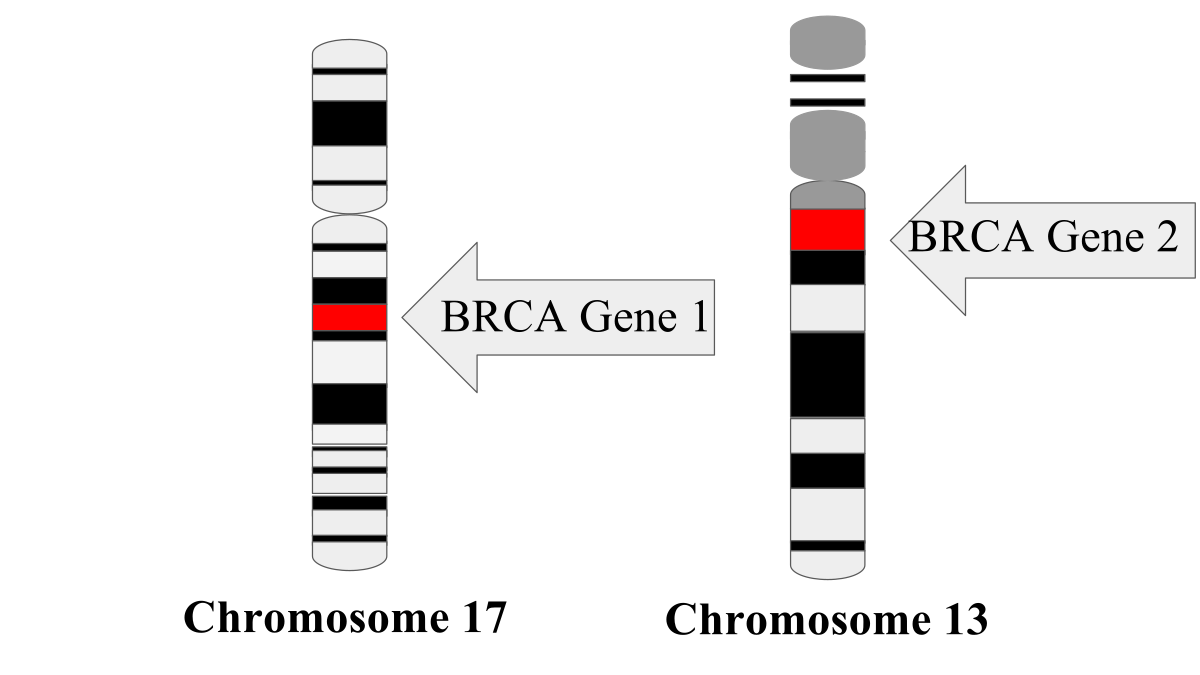The BRCA1 and BRCA2 mutations are genetic mutations that greatly increase a woman's risk in developing breast and/or ovarian cancer. A misconception about these mutations is that they will cause a person to develop breast or ovarian cancer, however this is not the case. They greatly increase the risk of developing it, but do not garuntee that a person will develop it. According to the CDC, the BRCA mutation is very common in Ashkenazi Jewish women with about 1 in 40 testing positive for it. In non-Ashkenazi people, the BRCA mutations are found in 1 in 800 people. The reason rates appear to be higher in Ashkenazi Jews is because they are all decendants from a group of 350 people about 25-32 generations ago. They call this group a "bottleneck" that passed on their mutations to every succeeding generation. This mutations include BRCA1, BRCA2, and Tay-Sachs disease among others. Since about 75-90% of all Jews in America are Ashkenazi, it is recommended that they all received genetic testing to find out of they have these mutations and if genetic counseling is necessary.
http://health.usnews.com/health-care/patient-advice/articles/2017-04-25/what-makes-ashkenazi-jews-more-susceptible-to-breast-cancer
http://www.nejm.org/doi/full/10.1056/nejm199705153362001#t=article

I think that the statistics from this study should be very alarming for Jewish women in America. Hopefully, awareness for this type of genetic testing increases so that they can get counseling and determine their risk for getting breast cancer. With the statistics being so high, it is important for them to get tested and talk about preventative measures they can take to lower their risk.
ReplyDeleteit is worndeful to see the progression science has made in terms of sequencing genomes. To single out two genes specifically associated with developing cancer in people of a certain religion/ancestral background is amazing. The statistics stated should be reviewed and those who find themselves at a possible risk should be genetically tested in order to provide ease to their future regardless of the outcome.
ReplyDelete